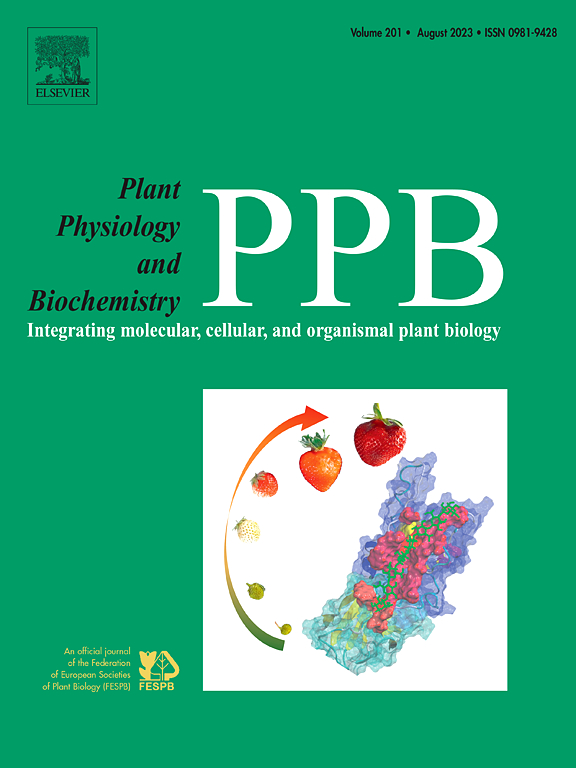The Deg5 and Deg8 thylakoid lumenal proteases are dispensable for photosynthesis and fruit ripening in Solanum lycopersicum
IF 6.1
2区 生物学
Q1 PLANT SCIENCES
引用次数: 0
Abstract
‘Deg’ is a family of soluble ATP-independent serine proteases, with plant Deg1, Deg5 and Deg8 localized to the chloroplast thylakoid lumen. These three proteases have been mostly studied with regard to the repair of damaged photosystem II (PSII) complexes during photoinhibition. The requirement of Deg5 and Deg8, proposed to work together as a heterohexamer, to PSII repair in Arabidopsis is debated. This, together with our interest in exploring the involvement of chloroplast proteases in the chloroplast-to-chromoplast transition, during which the thylakoid network is dismantled, prompted us to study the lumenal Deg proteases in tomato (Solanum lycoperiscum) plants. Toward this, we generated tomato knockout plants and focused on leaf photosynthesis and on fruit development and ripening. Lack of SlDeg1 resulted in chlorotic leaves and considerably impaired plant growth. On the other hand, mutants lacking both SlDeg5 and SlDeg8 were very similar to WT plants, and had neither impaired nor enhanced photosynthetic performance at different controlled or variable conditions. Monitoring fruit development and ripening, as well as fruit characteristics and plant yield showed that they were not affected in sldeg5/8 mutants. We thus propose that SlDeg5 and SlDeg8 are not essential for photosynthesis and fruit ripening in tomato plants.
求助全文
约1分钟内获得全文
求助全文
来源期刊
CiteScore
11.10
自引率
3.10%
发文量
410
审稿时长
33 days
期刊介绍:
Plant Physiology and Biochemistry publishes original theoretical, experimental and technical contributions in the various fields of plant physiology (biochemistry, physiology, structure, genetics, plant-microbe interactions, etc.) at diverse levels of integration (molecular, subcellular, cellular, organ, whole plant, environmental). Opinions expressed in the journal are the sole responsibility of the authors and publication does not imply the editors'' agreement.
Manuscripts describing molecular-genetic and/or gene expression data that are not integrated with biochemical analysis and/or actual measurements of plant physiological processes are not suitable for PPB. Also "Omics" studies (transcriptomics, proteomics, metabolomics, etc.) reporting descriptive analysis without an element of functional validation assays, will not be considered. Similarly, applied agronomic or phytochemical studies that generate no new, fundamental insights in plant physiological and/or biochemical processes are not suitable for publication in PPB.
Plant Physiology and Biochemistry publishes several types of articles: Reviews, Papers and Short Papers. Articles for Reviews are either invited by the editor or proposed by the authors for the editor''s prior agreement. Reviews should not exceed 40 typewritten pages and Short Papers no more than approximately 8 typewritten pages. The fundamental character of Plant Physiology and Biochemistry remains that of a journal for original results.

 求助内容:
求助内容: 应助结果提醒方式:
应助结果提醒方式:


